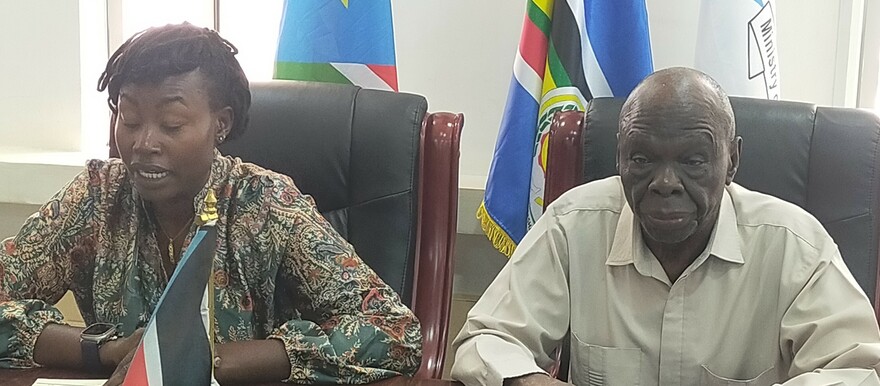South Sudan’s government announced on Saturday the indefinite closure of all schools due to an ongoing heatwave. The decision comes amidst exceptionally high temperatures experienced during both day and night over the past few days.
Speaking at a joint news conference, Minister of Health Yolanda Awel Deng stated that most parts of South Sudan are currently facing a heatwave forecasted to persist for at least two weeks, with temperatures soaring between 41 to 45 degrees Celsius.
“The Government has taken the following measures: Firstly, the closure of all schools effective from Monday, 18th March 2024. Secondly, during the school closures, parents are advised to prevent their children from outdoor activities for prolonged periods and closely monitor them, especially the young ones, for signs of heat exhaustion and heatstroke,” Awel explained.
The health minister emphasized that prolonged exposure to high temperatures poses significant physiological stress on the human body, exacerbating global leading causes of death such as respiratory and cardiovascular diseases, diabetes mellitus, and renal disease.
Awel emphasized that heatwaves can have acute impacts on large populations within short periods, often leading to public health emergencies and increased mortality rates. These events also trigger socioeconomic consequences, such as reduced work capacity and productivity, as well as disruptions in health service delivery due to power shortages commonly associated with heatwaves.
She further stated that her ministry’s disease surveillance department has implemented a system to detect and respond to cases related to excessive heat, as there have already been reports of heat-related deaths in South Sudan.
Meanwhile, Joseph Africano Bartel, Undersecretary for Environment in the Ministry of Environment and Forestry, highlighted the global phenomenon of climate change and its impact on temperature fluctuations in South Sudan. He recommended that schools ensure proper ventilation, install solar panels to power fans, and plant trees in their compounds to create microclimates.
Africano urged developed countries to reduce emissions, cautioning that South Sudan will face unprecedented climate change effects in the near future, including heavy rains, floods, and droughts.
Reacting to the situation, Ter Manyang, Executive Director of the Rights Group Center for Peace and Advocacy (CPA), stressed the collective responsibility of stakeholders in addressing global warming and natural disasters. He expressed concern that the school closures could lead to negative outcomes such as increased pregnancies among idle girls.
“While the decision to close schools is not unreasonable, the lack of clear procedures is concerning. The ministers should have outlined specific protocols, including the duration of the suspension. There are alternative options, such as staggered classes, to keep students engaged rather than halting learning altogether,” Manyang remarked.
He suggested that authorities seek consultation with the IGAD Climate Prediction and Application Center (ICPAC) for expert advice on handling such situations.




